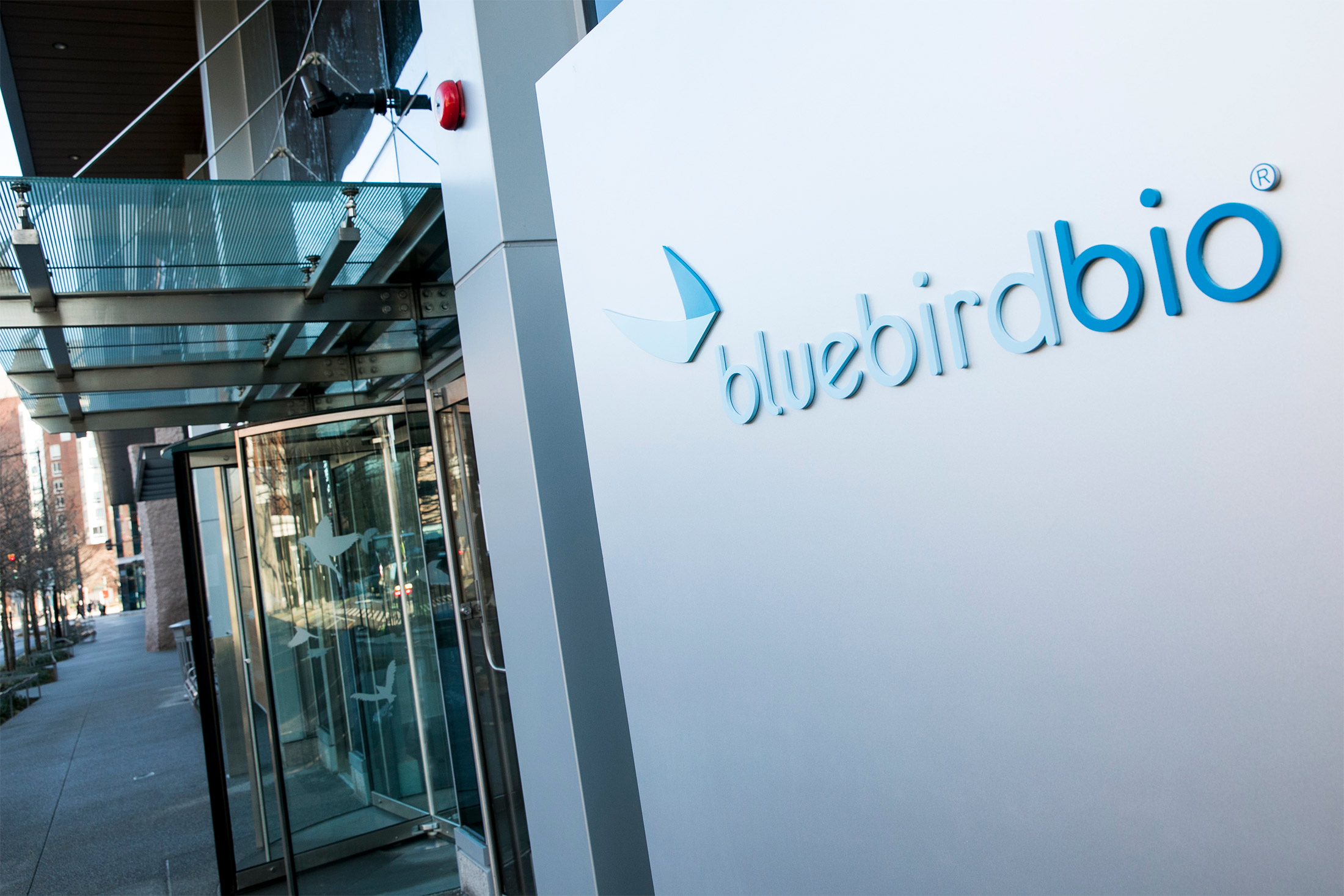Cambridge-based gene therapy developer Bluebird Bio announced a public offering of $150 million in common stock to raise capital supporting its three approved treatments and provide working capital.
The pioneer in gene therapies will offer shares on the NASDAQ under the ticker symbol BLUE, with underwriters granted a 30-day option to purchase an additional $22.5 million in stock. Bluebird stated the final size and terms remain subject to market conditions.
Goldman Sachs and J.P. Morgan are serving as joint book runners on the deal, with Raymond James as co-manager on the offering. All shares sold will come directly from Bluebird Bio.
Proceeds from the public stock sale will specifically further commercialization, manufacturing, and launch efforts behind the company’s newly approved gene therapies – Zynteglo for beta thalassemia, Skysona for cerebral adrenoleukodystrophy, and Lyfgenia for sickle cell disease.
The capital raise also provides balance sheet support as Bluebird continues its transition into a fully-integrated commercial biotech selling proprietary therapies targeting rare diseases.
Analysts see the offering as a move to seize current investor enthusiasm and strengthen Bluebird’s financial position after a turbulent few years adjusting to regulatory setbacks.
With three potent gene therapies now approved since August 2022, Bluebird looks to ride accelerating momentum as its treatments reach more patients globally. But the specialized nature of gene therapy production and administration constrains rapid scaling despite massive market opportunities.
Hefty expenses can also accrue during the early stages of drug launches pending insurance coverage and reimbursement decisions country by country.
Tuesday’s proposed $150 million offering suggests management sees room to accelerate growth in 2024 while demand runs hot for novel gene therapies.
Gene Therapies Target Root Causes of Diseases by Manipulating Genes
The permanent gene corrections from one-time gene therapy represent potential cures promising to revolutionize treatment for blood disorders, cancers, inherited disorders and degenerative diseases.
After gene therapy showed immense promise in the 2010s, developmental and safety hurdles caused temporary setbacks for the emerging category.
But breakthrough approvals over the past 18 months from Bluebird and others have reinvigorated investor appetite to fund the next generation of radical genetic medicines now reaching patients in need.
While small in patient size, the market chances to generate multi-billion sales treating high unmet needs in rare diseases with no other solutions for the underlying condition.
Goldman Sachs and JPMorgan’s involvement arranging Bluebird’s latest stock sale reflects rising investor intrigue and renewed confidence in realizing gene therapy’s paradigm-changing potential after past stumbles.
Still Long Road Ahead as Gene Therapies Slowly Build Adoption
However, analysts caution the road remains long translating hype into real revenues as gene therapy faces entrenched barriers preventing mass adoption anytime soon.
Priced at over $2 million per treatment, gene therapies today dispense more hope than profit for developers. Reimbursement pushback from insurers and intense medical limitations temper growth projections.
Bluebird’s approved drugs currently treat tiny populations measured in the single digit thousands globally. But success establishing coverage helps pave the way for expanding into wider therapeutic indications in time.
With fresh financing now on tap, Bluebird Bio stock offers a investment into a maturing gene therapy leader well-positioned to ride coming decades of medical advancements illuminating genetics’ role beating back disease.
Yet expectations likely stay muted near-term for all gene therapy plays absent key inflection events bringing more treatments past global regulatory gates.
